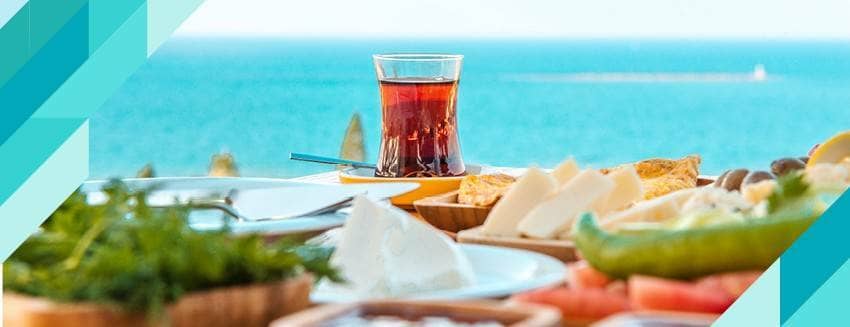
The month of Ramadan, which was spent under the measures taken within the scope of the fight against coronavirus, is coming to an end and the Eid is just days away. It may not be easy for the stomach and intestinal system, which is used to eating two meals a day, to transition to normal order. It is recommended to consume cheese, olives, eggs, honey, honey and plenty of green vegetables instead of fried foods, pastries and desserts in the first breakfast to be made from the morning of the feast. Experts recommend a 45-minute brisk walk at least 1-2 hours after meals to increase the slowing metabolic rate.
Üsküdar University NPISTANBUL Hospital Nutrition and Diet Specialist Özden Örkçü made important recommendations so that those who fasted after Ramadan, which was spent in the shadow of the coronavirus, would not have difficulty in transitioning to normal nutrition.
The body may have difficulty in transitioning to normal order
Stating that the eating habits of fasting individuals will change starting from Eid, Özden Örkçü said, "Eid is approaching. After a long period of hunger and thirst during Ramadan, it may not be easy for the body to switch back to a normal diet. During this period, nausea, loss of appetite, gas pains and constipation may be experienced as a result of prolonged hunger, a gastrointestinal system accustomed to eating 2 meals and slowing metabolism. In addition, in people with metabolic disorders, high-calorie food consumption can cause sudden sugar spikes and thus blood pressure problems and cardiovascular disorders. It can also be seen that high-calorie products taken into the body cause weight gain."
Adequate and balanced nutrition
Örkçü said that adequate and balanced nutrition is the main rule and continued his words as follows: "Eating from all food groups together, chewing slowly and well, eating little and often, consuming vegetables and fruits for pulp intake, consuming enough fat and unsaturated fats should be preferred. It is very important to drink at least 1.5-2 liters of water daily, and to take care to get enough protein from cereals, legumes and animal foods. To increase the slowing metabolism, 45-minute brisk walks can be started at least 1-2 hours after meals."
Attention to Eid breakfast
Emphasizing that attention should be paid to feast breakfasts after the fasting period, Özden Örkçü said, "First of all, foods that will stimulate insulin release less and reinforce satiety should be preferred. The first breakfasts should definitely not include fried foods, pastries or desserts. Cheese, olives, eggs, honey and plenty of green vegetables, which we can call classical nutrition, should be preferred. During the day, olive oil dishes, soups and vegetable dishes with low fat and tomato paste, which we can call classical Turkish cuisine, should be consumed. For dessert, milk desserts and fruit ice creams should be preferred instead of baklava and pastry-style foods. All these foods will reduce the formation of gas and bloating."
How should balanced and healthy meals be?
Özden Örkçü noted that a protein-heavy lunch and an easy-to-digest, low-calorie vegetable-heavy menu should be preferred in the evening, and shared healthy meal recommendations as follows:
Morning: (07:00 - 08:00)
1 slice of cheese
3-4 olives or 2-3 walnuts
1 teaspoon molasses or honey
1-2 slices of whole wheat bread
(Eggs at least 3 times a week if there is no disease that may prevent it)
Chopped tomatoes and cucumber
Break: (10:00 - 10:30)
1 serving of fruit
Lunch: (12:30-13:00)
90 g grilled meat/fish/chicken
6 spoons of bulgur pilaf or whole wheat pasta
Plenty of salad
Break: (16:00 - 16:30)
1 serving of fruit + 1 milk dessert
Evening: (19:00 - 20:00)
1 bowl of soup
1 serving of vegetable dish
Salad
Half a bowl of fat-free yogurt
1-2 slices of whole wheat bread

